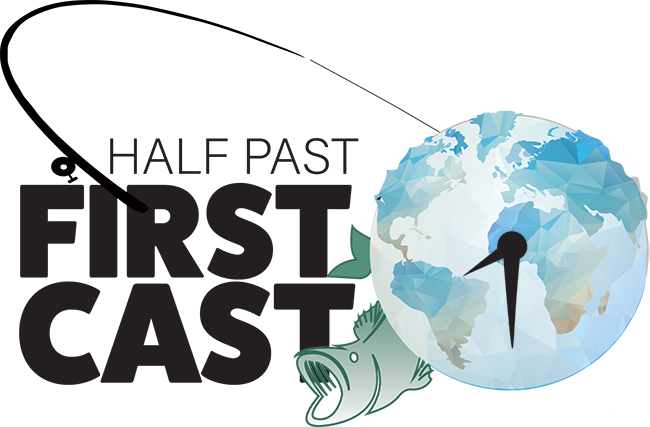Why I NEED to Go Back to Sport Fish Panama Island Lodge
Have you ever traveled someplace, had a fabulous time, and no matter how long you stayed when it came time to go home it was just too short?
As we prepared to leave Sport Fish Panama Island Lodge, I felt a pit in my stomach. We loaded up the dinghy with our luggage what felt like moments after we’d arrived. I remember thinking, “I don't want to go home. When are we going to come back?”
For our entire journey home, Pete and I replayed each fish we caught, mourned the fish we didn't catch, and recalled the food we ate and the recipes I wished I’d gotten from Chef Eddie. Most importantly, I kept asking how soon were we going to come back.
Pete threw my for a loop when he stated that he would give up his bass boat to come fish in Panama a few times a year. He hasn’t been without a bass boat since November of 1996. Sometimes I think he loves his Bass Cat more than he loves me and Rooster. Yes, he loved Panama that much.
We hadn’t even unpacked our luggage (except for the tuna fillets to put them in the freezer) when Pete and I sat down to have “the talk.” How soon could we get a group together to head back down? We had some free time in November. Was that too soon? Actually, it wasn’t soon enough!
November is the end of the rainy season in Panama and it's one of the best months for inshore fishing. We’d focused mostly on the magical tuna in April, and we were glad we did, but with only four days to fish that meant we could only spend a little bit of time inshore. This time, we can do more of that. It's also prime time for black and blue marlin (two fish that I have not yet caught). There might be sailfish around, and after two trips to Guatemala I can never get enough of them. And of course there will be tuna in the vicinity, as they’re in the Gulf of Chiriquí 12 months out of the year. I might even get my first wahoo. I added roosterfish and almaco jack to my “life list” in April, but with some additional time around the rocky island habitat I can beat my personal bests, and also add species like amberjack, cubera snapper and mullet snapper.
Now that I’ve had some experience popping for tuna, it’s time to improve and refine my topwater technique. I'm short, so once I lob the lure into the water I have to find the best position in the boat to rip the rod downward and make the lure pop violently across the water (without tumbling) so that the tuna are attracted to it and want to eat it. You need to chug the big popper really hard, throwing as much water as possible.
Cast, pop, reel -- Reminds me of snap, crackle and pop!
When the fish hits they often run directly at you or off to the side, so you reel as fast as possible to prevent slack, which will allow them to get off even if they’re seemingly hooked very well. When you finally get a grip on the rampaging fish and he realizes he’s hooked, you let the spinning reel’s drag work its magic. It’s a long-term battle – reel, run, reel, run. You just have to hope that the tuna gets tired before you do give out, give up or have to hand the rod off.
While Captain Shane Jarvis provides all of the top-quality Yo-Zuri poppers (along with other topwaters and subsurface lures) that you need to excel in Panama, I’m also super-excited to go back and use the customized lures that Kermett Adams of K Lures made for us. I want to get teeth marks on them and then display their beauty on the wall of my office, or maybe in a big replica to remind me of trip number two.
I’m also hoping that Chef Eddie makes exactly what he made last time while we were there. Tuna thirteen ways. His veggies tasted rich and flavorful, as if they couldn’t be good for you. His “small” pieces of dessert were decadent. And his eggs and fresh baked bread every morning made it worth getting up early. I’m sure he’ll surprise us with some new creations, but if he just replayed the menu from April I’d be a happy camper.
And yes, I need to restock our Yeti cooler with some tuna fillets to eat back in the USA. The sushi-grade fish is a reminder of paradise wrapped in a healthy meal.
The most significant reason for our return, besides catching fish, is to bring back people with us to experience paradise and the trip of a lifetime. Pete keeps on saying that it was “life-changing” and for once I don’t think he’s exaggerating. If you love the beautiful scenery and great food, this is for you. If you think bass fishing is great, this is for you. And if you think that Amazonian peacock bass create the most violent topwater strikes on the planet, well, I’m guessing you’ve never seen a 60-pound yellowfin tuna explode on a big popper.
We may still have a spot or two, so if you are interested in experiencing this epic trip for the first time in November shoot me an email. Even if you can’t make it in November, trust me, you need to go. I’m happy to tell you more about it or start planning your return to this addictive piece of paradise. Feel free to email me at fishmore@halfpastfirstcast.com or call 703-932-6299.



